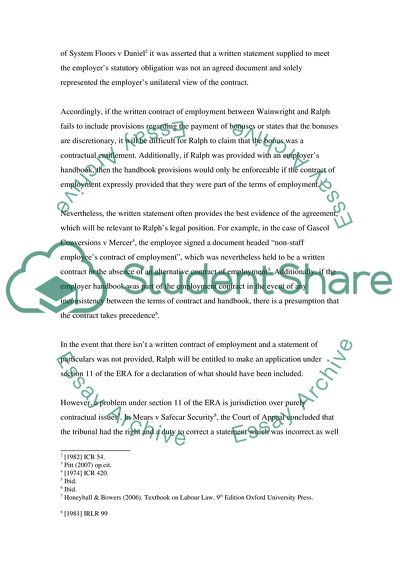Cite this document
(Entitlement to the Bonuses and Employers Variation of the Contract Case Study, n.d.)
Entitlement to the Bonuses and Employers Variation of the Contract Case Study. Retrieved from https://studentshare.org/law/1719628-employment-law
Entitlement to the Bonuses and Employers Variation of the Contract Case Study. Retrieved from https://studentshare.org/law/1719628-employment-law
(Entitlement to the Bonuses and Employers Variation of the Contract Case Study)
Entitlement to the Bonuses and Employers Variation of the Contract Case Study. https://studentshare.org/law/1719628-employment-law.
Entitlement to the Bonuses and Employers Variation of the Contract Case Study. https://studentshare.org/law/1719628-employment-law.
“Entitlement to the Bonuses and Employers Variation of the Contract Case Study”, n.d. https://studentshare.org/law/1719628-employment-law.


